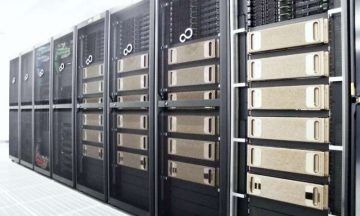From Phys.Org:
 Artificial intelligence (AI) technology developed by the RIKEN Center for Advanced Intelligence Project (AIP) in Japan has successfully found features in pathology images from human cancer patients, without annotation, that could be understood by human doctors. Further, the AI identified features relevant to cancer prognosis that were not previously noted by pathologists, leading to a higher accuracy of prostate cancer recurrence compared to pathologist-based diagnosis. Combining the predictions made by the AI with predictions by human pathologists led to an even greater accuracy. According to Yoichiro Yamamoto, the first author of the study published in Nature Communications, “This technology could contribute to personalized medicine by making highly accurate prediction of cancer recurrence possible by acquiring new knowledge from images. It could also contribute to understanding how AI can be used safely in medicine by helping to resolve the issue of AI being seen as a ‘black box.'”
Artificial intelligence (AI) technology developed by the RIKEN Center for Advanced Intelligence Project (AIP) in Japan has successfully found features in pathology images from human cancer patients, without annotation, that could be understood by human doctors. Further, the AI identified features relevant to cancer prognosis that were not previously noted by pathologists, leading to a higher accuracy of prostate cancer recurrence compared to pathologist-based diagnosis. Combining the predictions made by the AI with predictions by human pathologists led to an even greater accuracy. According to Yoichiro Yamamoto, the first author of the study published in Nature Communications, “This technology could contribute to personalized medicine by making highly accurate prediction of cancer recurrence possible by acquiring new knowledge from images. It could also contribute to understanding how AI can be used safely in medicine by helping to resolve the issue of AI being seen as a ‘black box.'”
The research group led by Yamamoto and Go Kimura, in collaboration with a number of university hospitals in Japan, adopted an approach called “unsupervised learning.” As long as humans teach the AI, it is not possible to acquire knowledge beyond what is currently known. Rather than being “taught” medical knowledge, the AI was asked to learn using unsupervised deep neural networks, known as autoencoders, without being given any medical knowledge. The researchers developed a method for translating the features found by the AI—only numbers initially—into high-resolution images that can be understood by humans.
More here.
